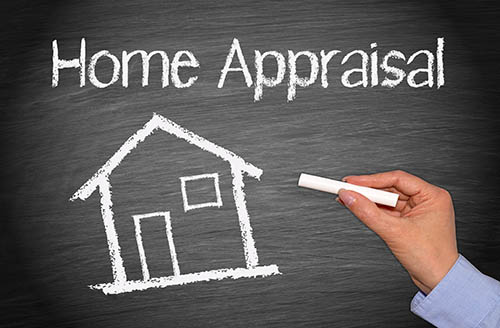 Home appraisals are a crucial step in the home buying process. It determines the property’s fair market value and helps lenders decide how much money to loan for the purchase. Ideally, the appraisal matches or exceeds the agreed-upon purchase price. However, when the appraisal comes in lower than expected, it can cause stress for both buyers and sellers. Knowing how to handle this situation calmly and strategically is key to keeping the deal on track.
Home appraisals are a crucial step in the home buying process. It determines the property’s fair market value and helps lenders decide how much money to loan for the purchase. Ideally, the appraisal matches or exceeds the agreed-upon purchase price. However, when the appraisal comes in lower than expected, it can cause stress for both buyers and sellers. Knowing how to handle this situation calmly and strategically is key to keeping the deal on track.
Why Appraisals Come in Low
A low appraisal can happen for several reasons. Sometimes, the market moves faster than the data appraisers use, especially in competitive areas where prices are rising quickly. In other cases, the appraiser may find fewer comparable sales or rely on outdated listings. Property condition, location, and recent renovations can also influence the final number. Understanding why the appraisal came in low helps you plan your next step.
Review the Appraisal Report Carefully
The first step is to request a copy of the appraisal report. Review it closely with your real estate agent to check for errors or missing details. If comparable homes were overlooked, or if certain upgrades were not considered, your agent may be able to provide additional data to support a higher value. In some cases, it is possible to request a reconsideration of value from the lender with updated evidence.
Renegotiate the Purchase Price
If the appraisal is significantly lower than the agreed price, buyers and sellers can renegotiate to bridge the gap. The seller may agree to lower the price to match the appraised value, or both parties may compromise by meeting somewhere in the middle. Sellers often prefer adjusting the price to keep the deal moving rather than risk starting over with new buyers.
Increase the Down Payment or Loan Amount
When a seller cannot reduce the price, the buyer can choose to cover the difference with additional funds. For example, if the appraisal is ten thousand dollars lower than the purchase price, the buyer can add that amount to their down payment. Some lenders also allow slight adjustments to the loan structure, though this depends on financial qualifications and loan type.
Explore an Appraisal Gap Clause
In competitive markets, some buyers include an appraisal gap clause in their offer. This means they agree in advance to pay a specific amount over the appraised value if needed. While this requires careful budgeting, it shows sellers that the buyer is serious and helps prevent deal delays when values fluctuate.
A low appraisal does not have to derail your home purchase. With clear communication, flexibility, and support from your real estate agent, you can often find a fair solution. Whether that means renegotiating, challenging the appraisal, or adjusting your finances, staying proactive ensures the deal remains on track and your goals stay within reach.
 Your home is likely one of your most valuable investments, which is why understanding home appraisals is essential. Whether youíre buying, selling, or refinancing, knowing what an appraisal involves can help you make informed decisions.
Your home is likely one of your most valuable investments, which is why understanding home appraisals is essential. Whether youíre buying, selling, or refinancing, knowing what an appraisal involves can help you make informed decisions. When buying or selling a home, a crucial step in the process is the home appraisal. It helps determine the property’s fair market value, which can significantly influence financing and negotiation outcomes. Whether you’re a first-time homebuyer or a seasoned seller, understanding the appraisal process is key. Here are seven commonly asked questions about home appraisals to guide you through.
When buying or selling a home, a crucial step in the process is the home appraisal. It helps determine the property’s fair market value, which can significantly influence financing and negotiation outcomes. Whether you’re a first-time homebuyer or a seasoned seller, understanding the appraisal process is key. Here are seven commonly asked questions about home appraisals to guide you through. When someone is thinking about buying a home, one of the key parts is the home appraisal. The appraisal ensures that the buyer is paying a fair price for the home while also protecting the mortgage lender against taking a loss.
When someone is thinking about buying a home, one of the key parts is the home appraisal. The appraisal ensures that the buyer is paying a fair price for the home while also protecting the mortgage lender against taking a loss.